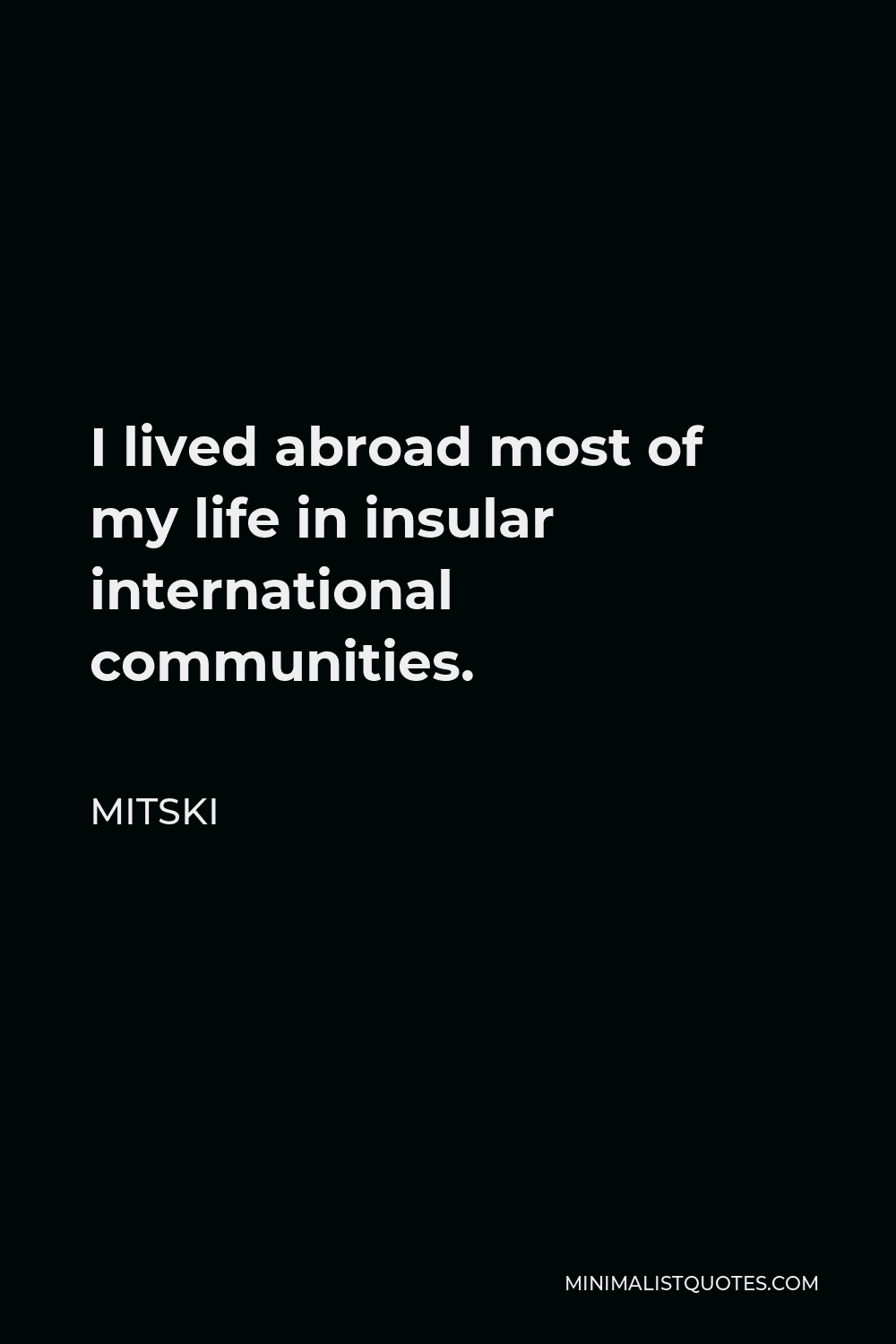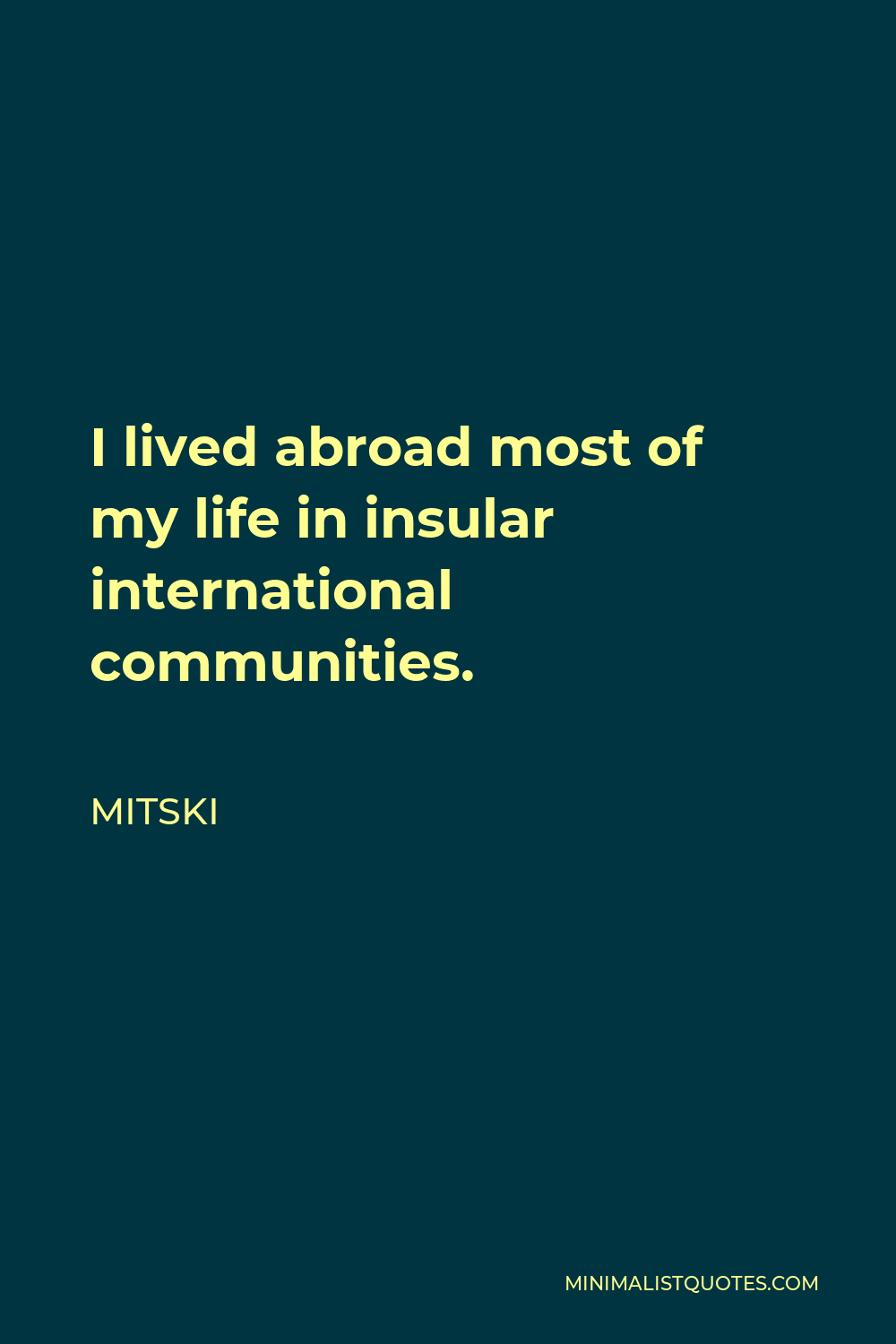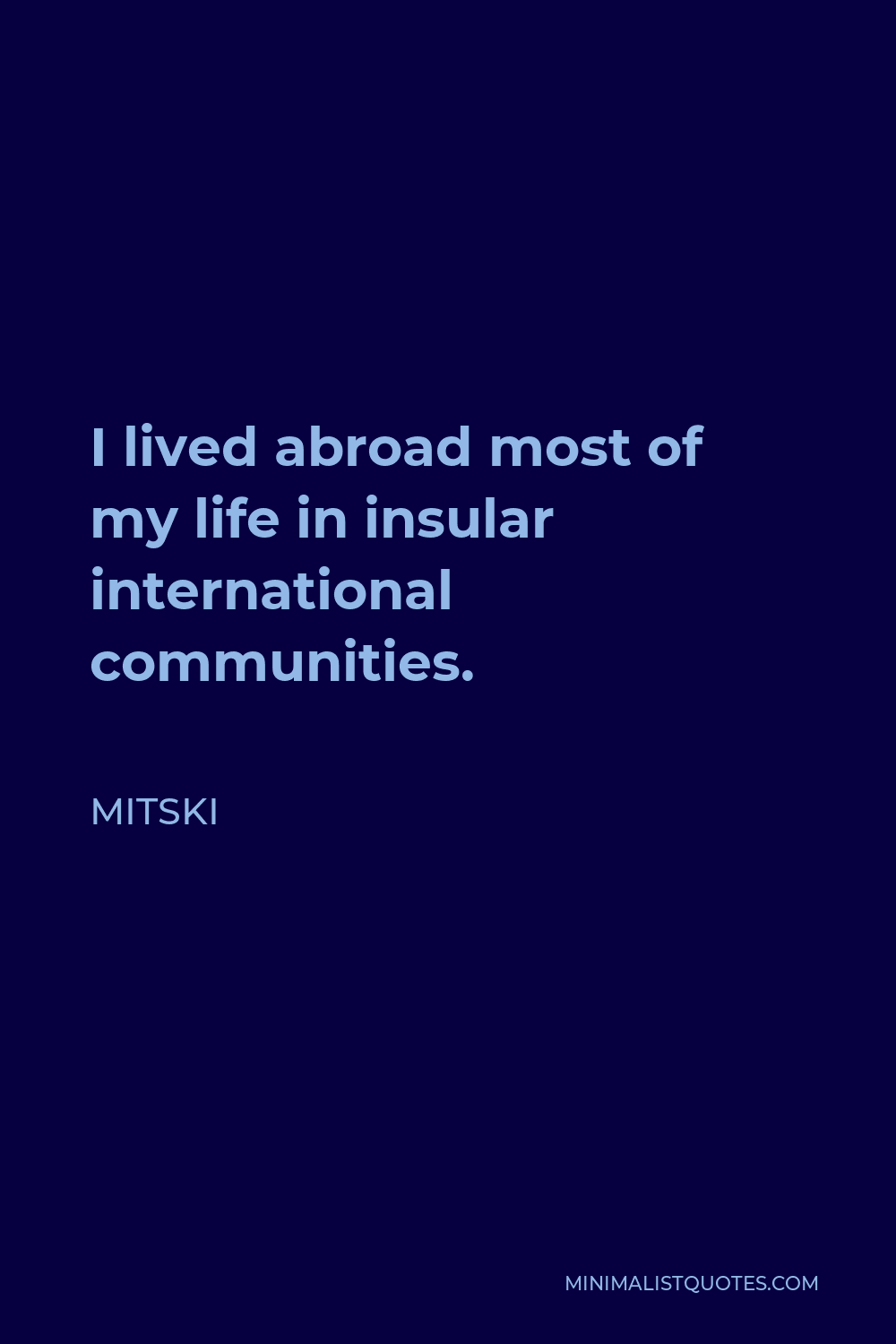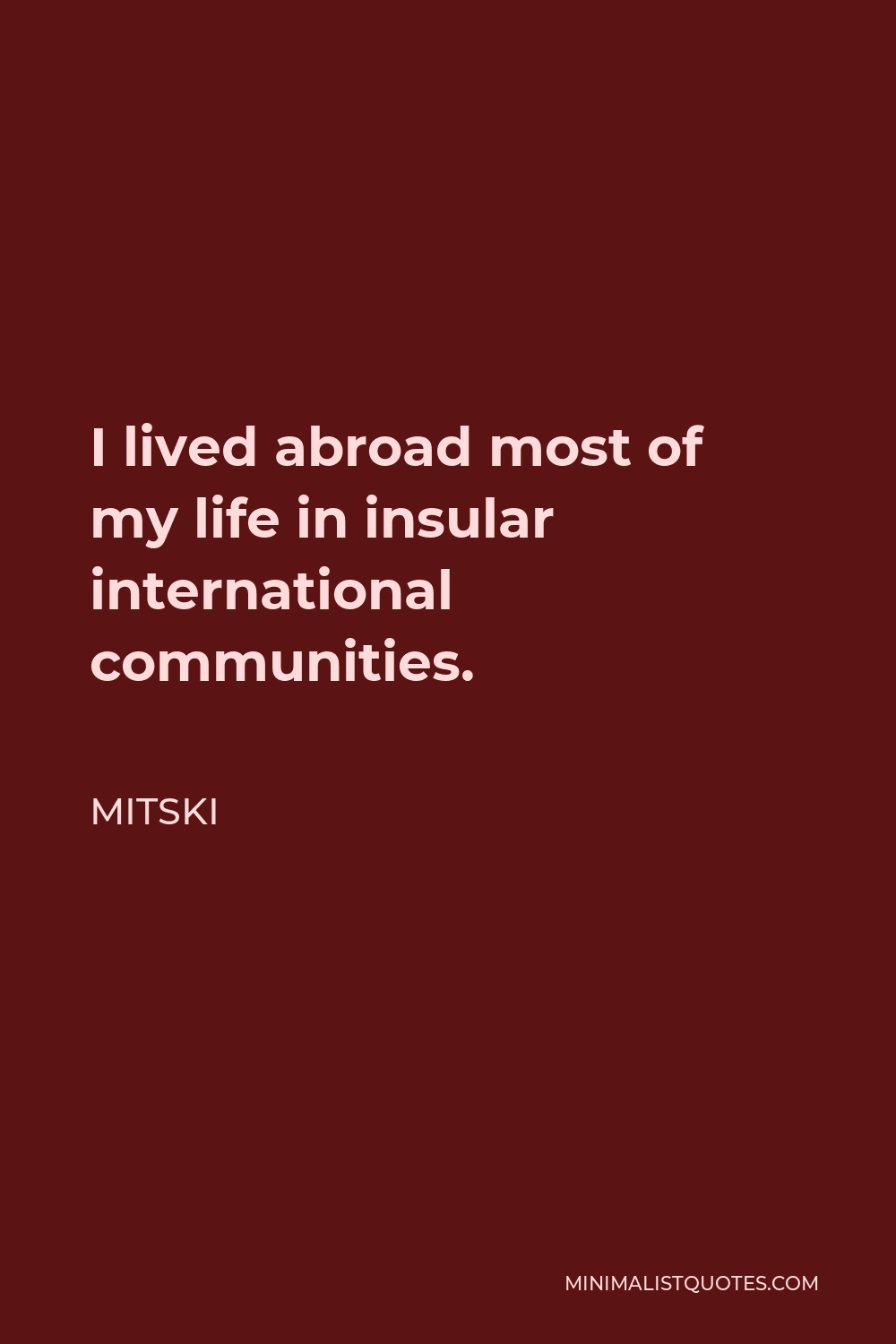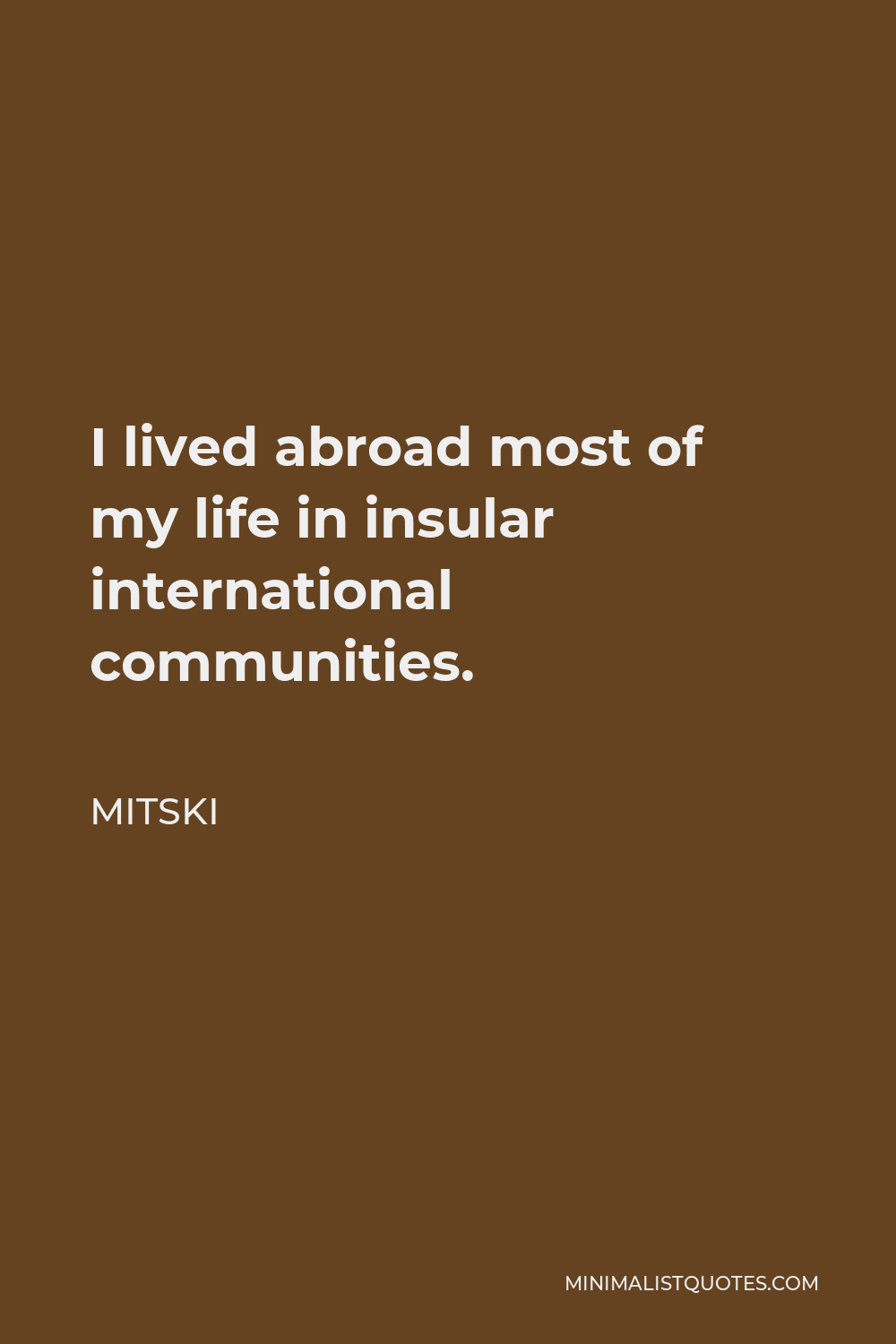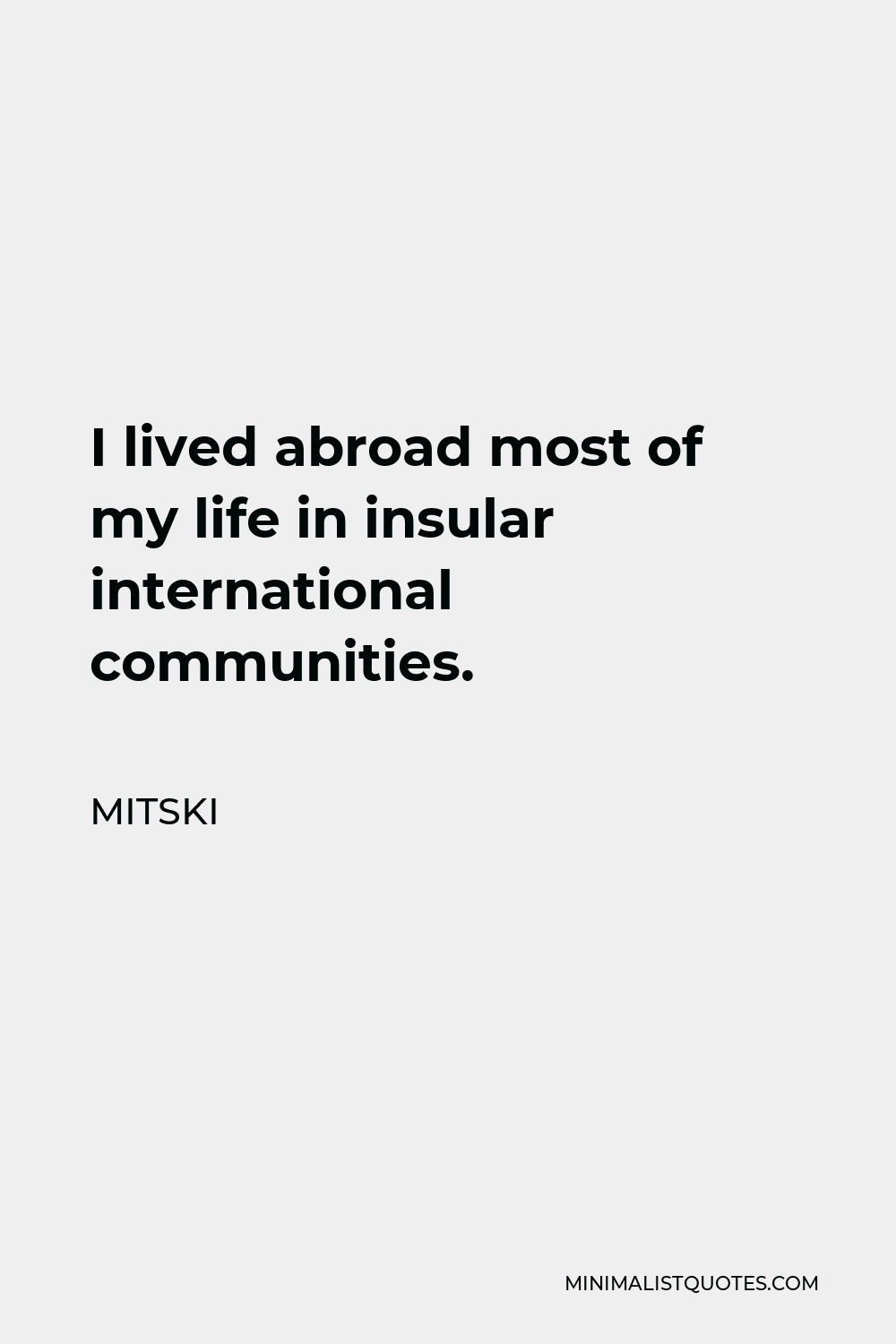I think growing up the way I did has made me a lot more objective, and that’s important in the process of writing and trying to look at subjective matter that way.
MITSKII lived abroad most of my life in insular international communities.
More Mitski Quotes
-





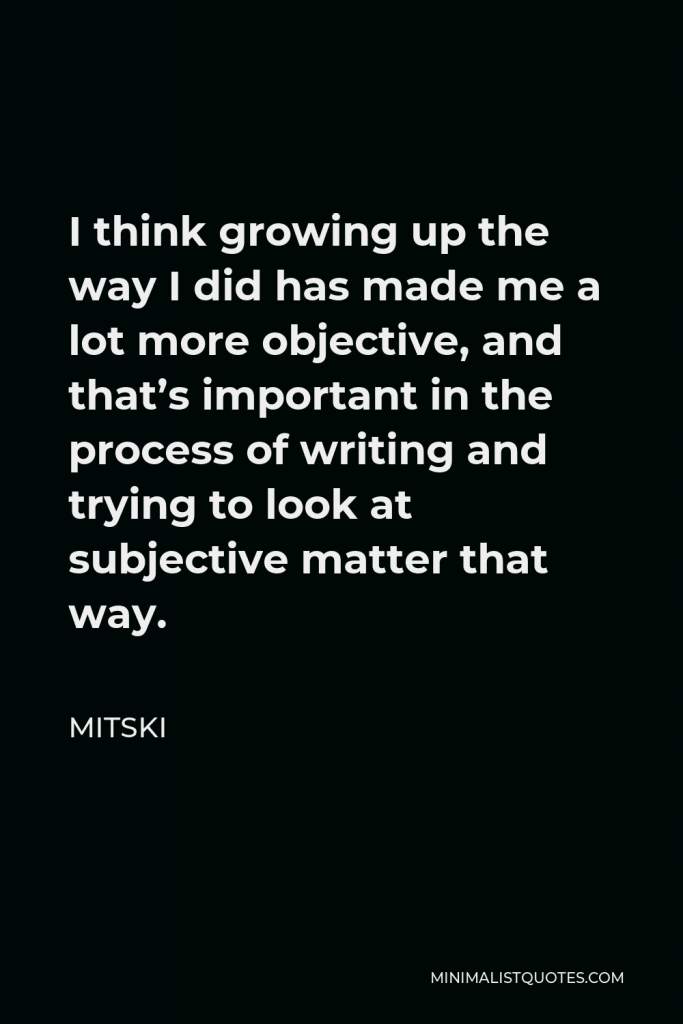

-





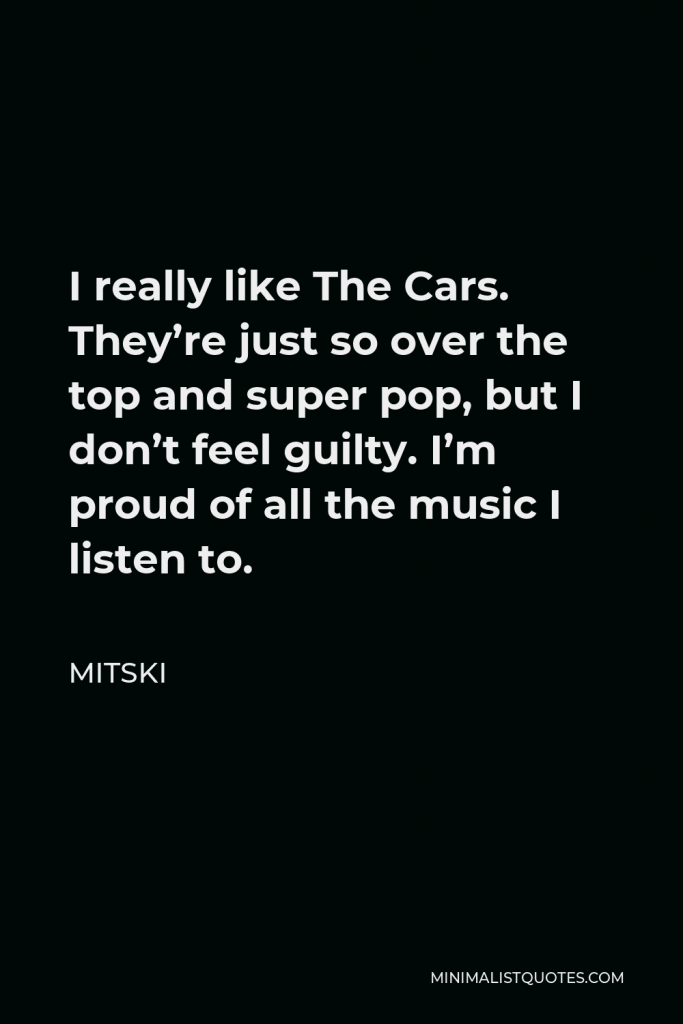

I really like The Cars. They’re just so over the top and super pop, but I don’t feel guilty. I’m proud of all the music I listen to.
MITSKI -





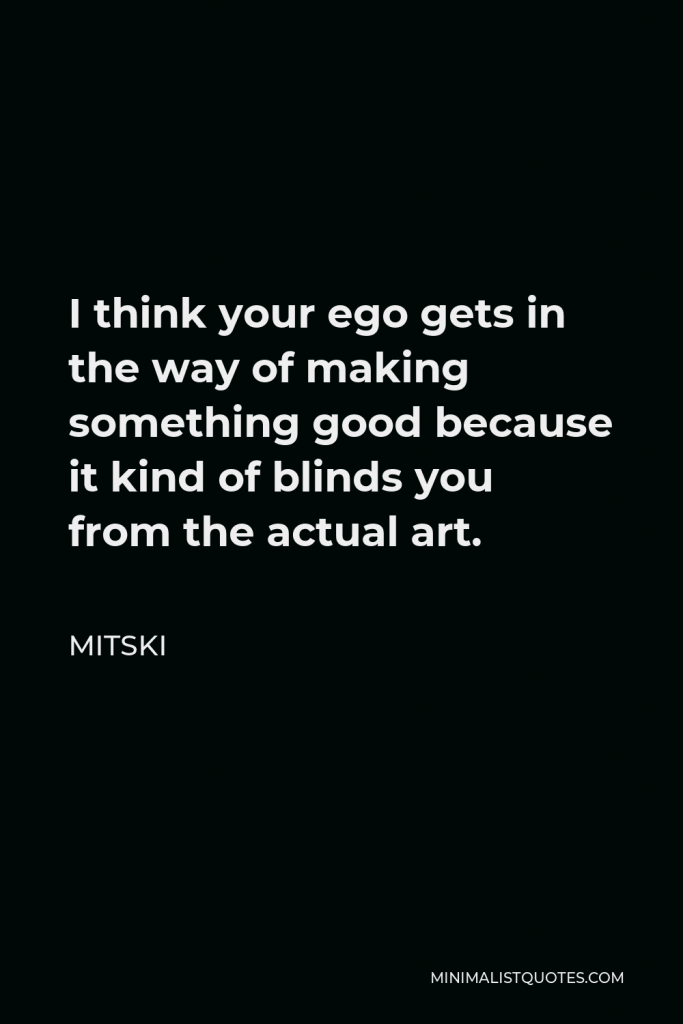

I think your ego gets in the way of making something good because it kind of blinds you from the actual art.
MITSKI -





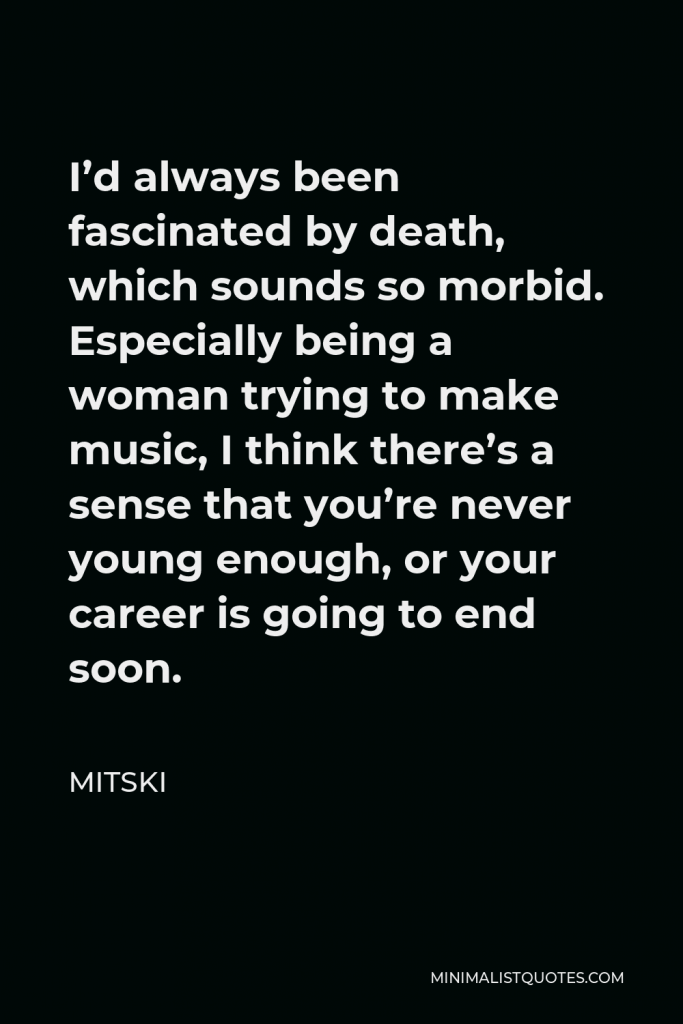

I’d always been fascinated by death, which sounds so morbid. Especially being a woman trying to make music, I think there’s a sense that you’re never young enough, or your career is going to end soon.
MITSKI -





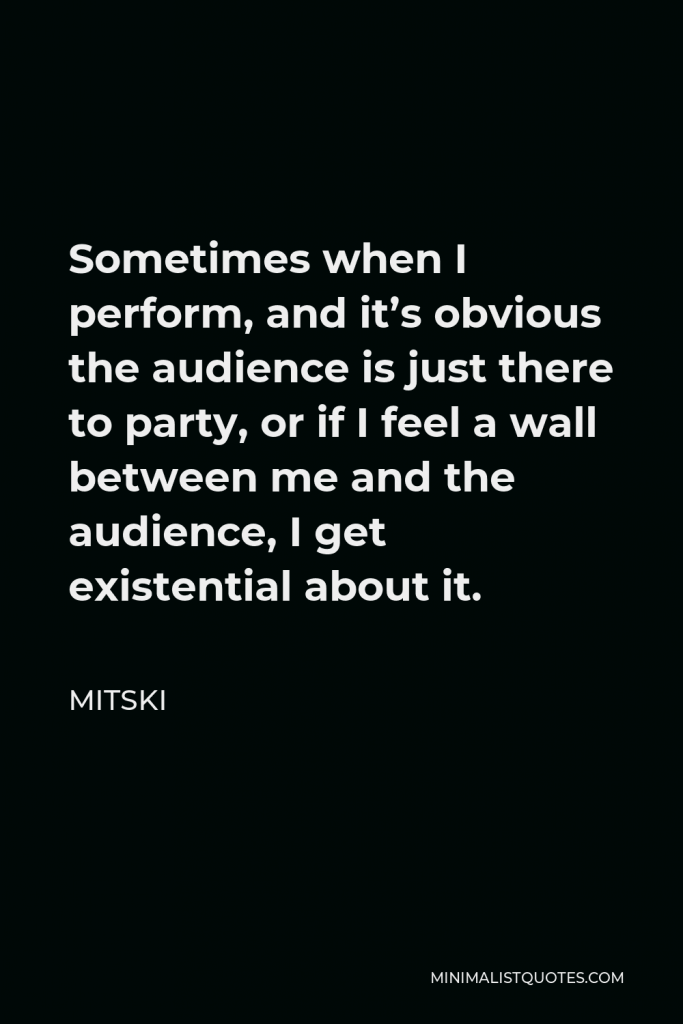

Sometimes when I perform, and it’s obvious the audience is just there to party, or if I feel a wall between me and the audience, I get existential about it.
MITSKI -





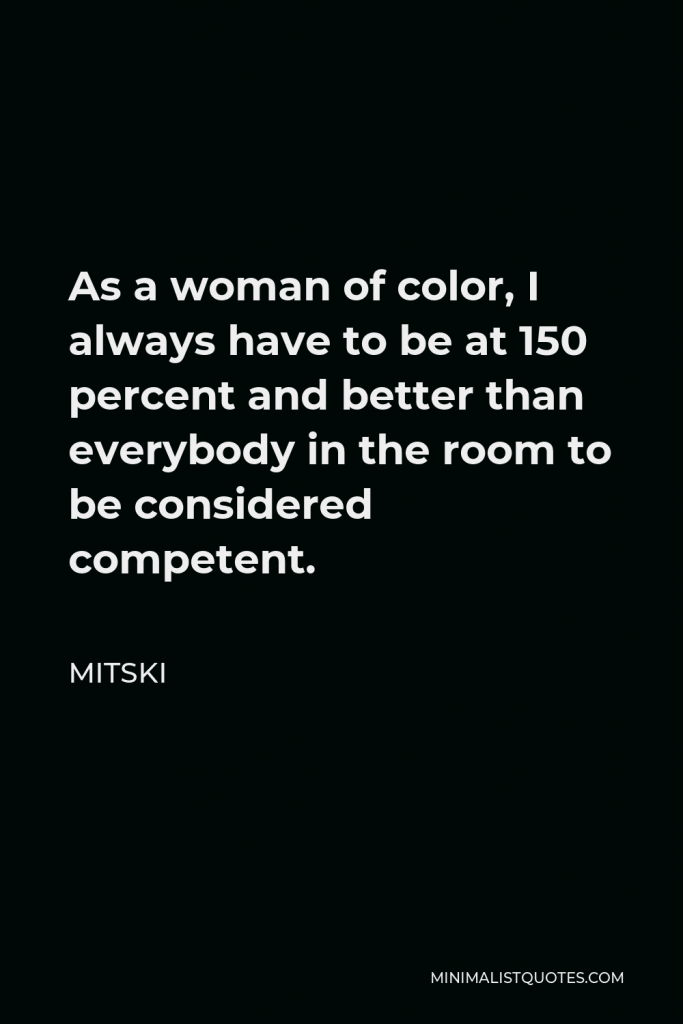

As a woman of color, I always have to be at 150 percent and better than everybody in the room to be considered competent.
MITSKI -





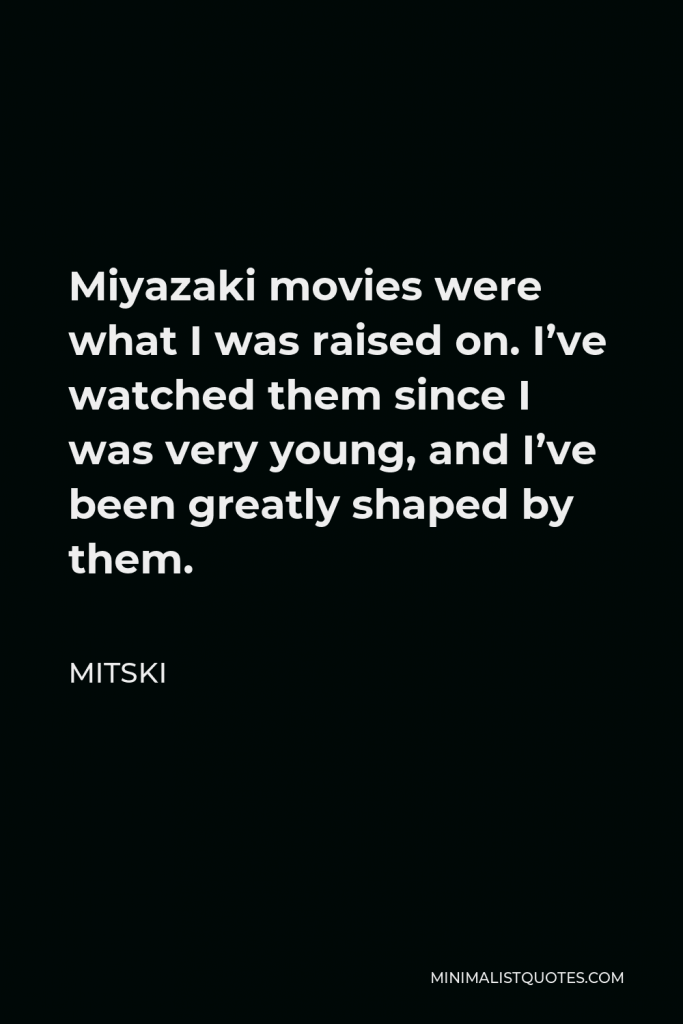

Miyazaki movies were what I was raised on. I’ve watched them since I was very young, and I’ve been greatly shaped by them.
MITSKI -





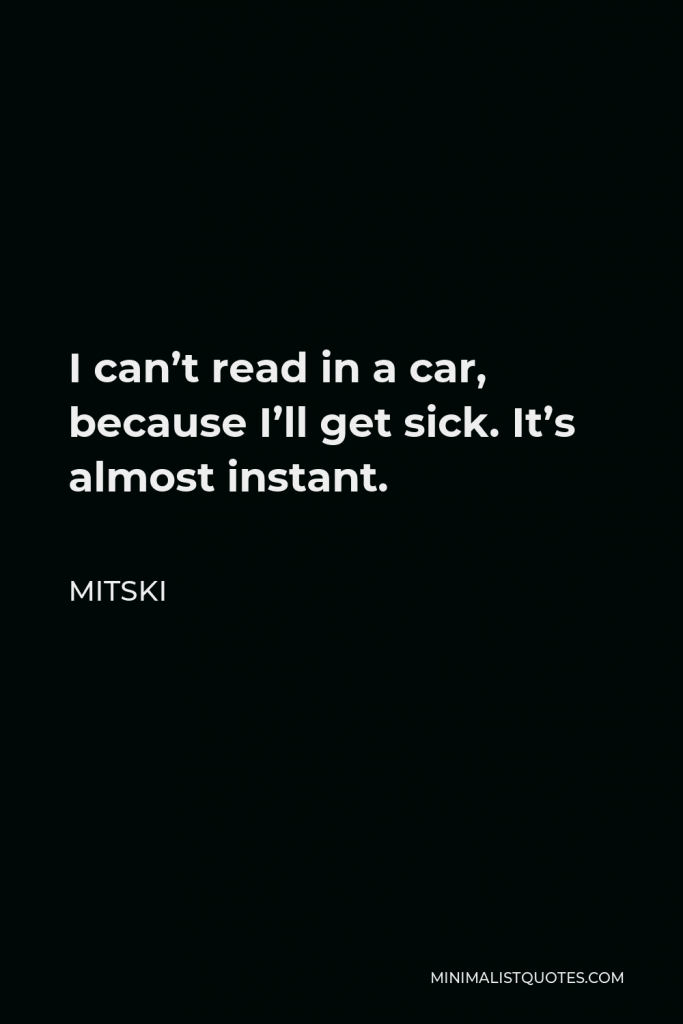

I can’t read in a car, because I’ll get sick. It’s almost instant.
MITSKI -





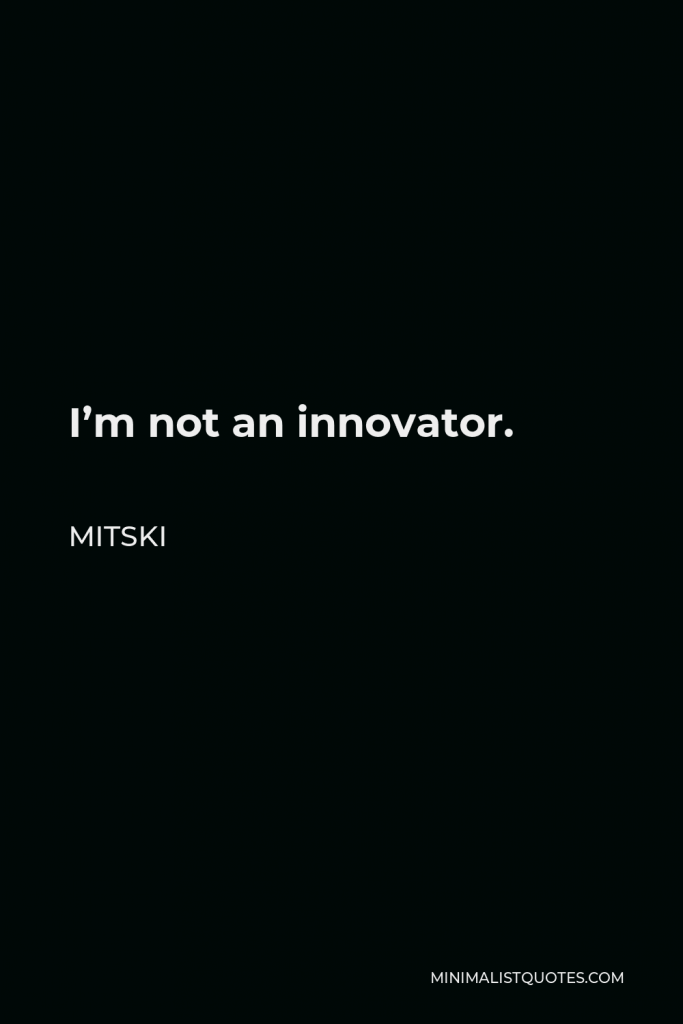

I’m not an innovator.
MITSKI -





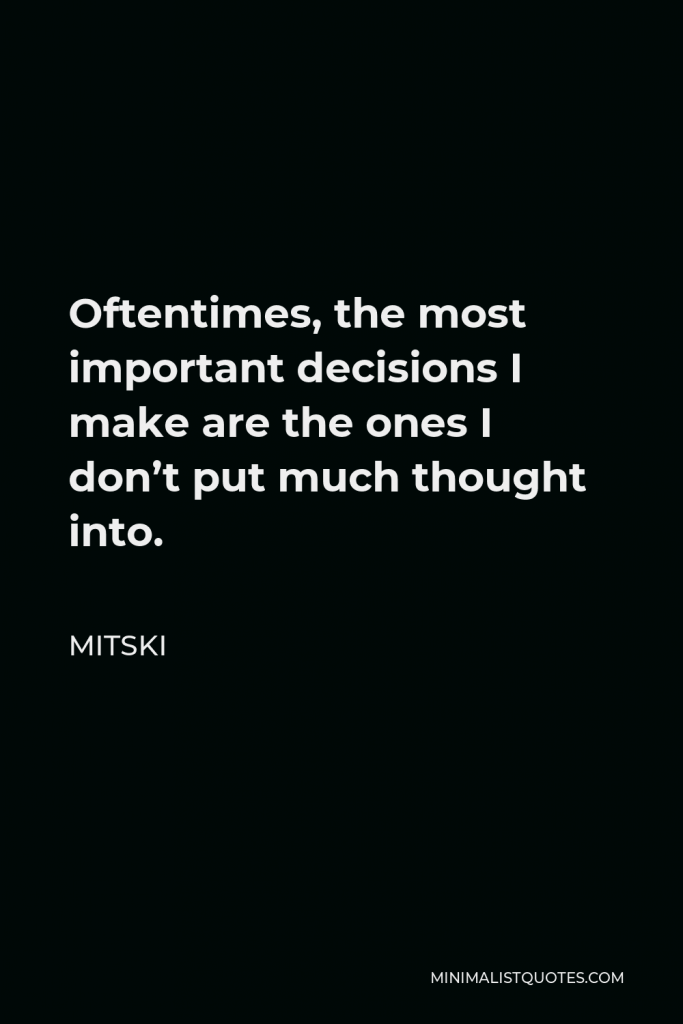

Oftentimes, the most important decisions I make are the ones I don’t put much thought into.
MITSKI -





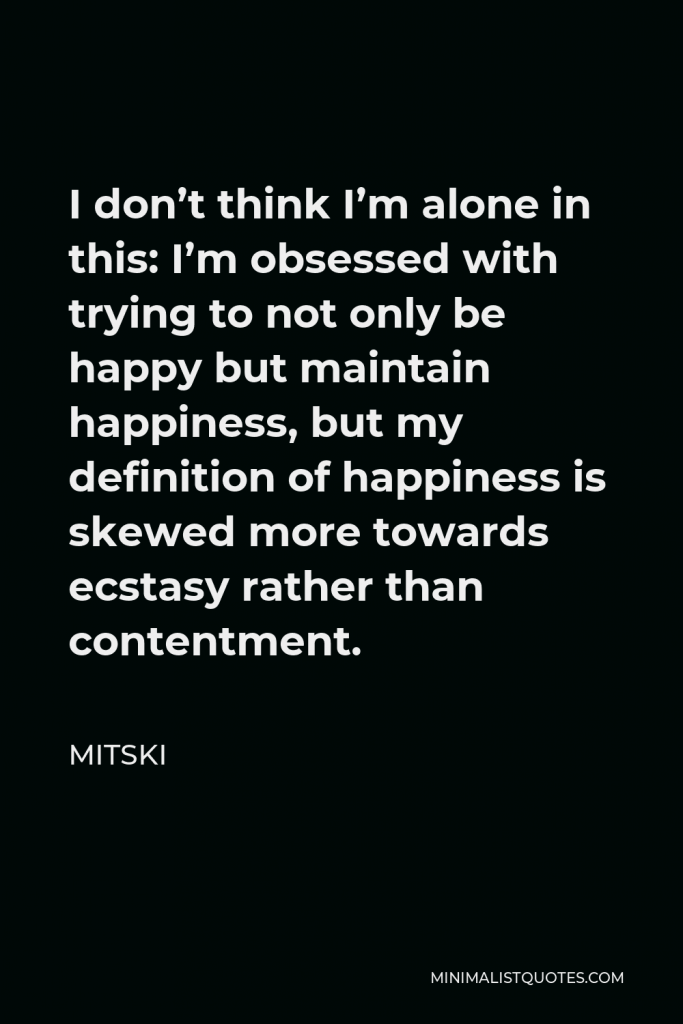

I don’t think I’m alone in this: I’m obsessed with trying to not only be happy but maintain happiness, but my definition of happiness is skewed more towards ecstasy rather than contentment.
MITSKI -





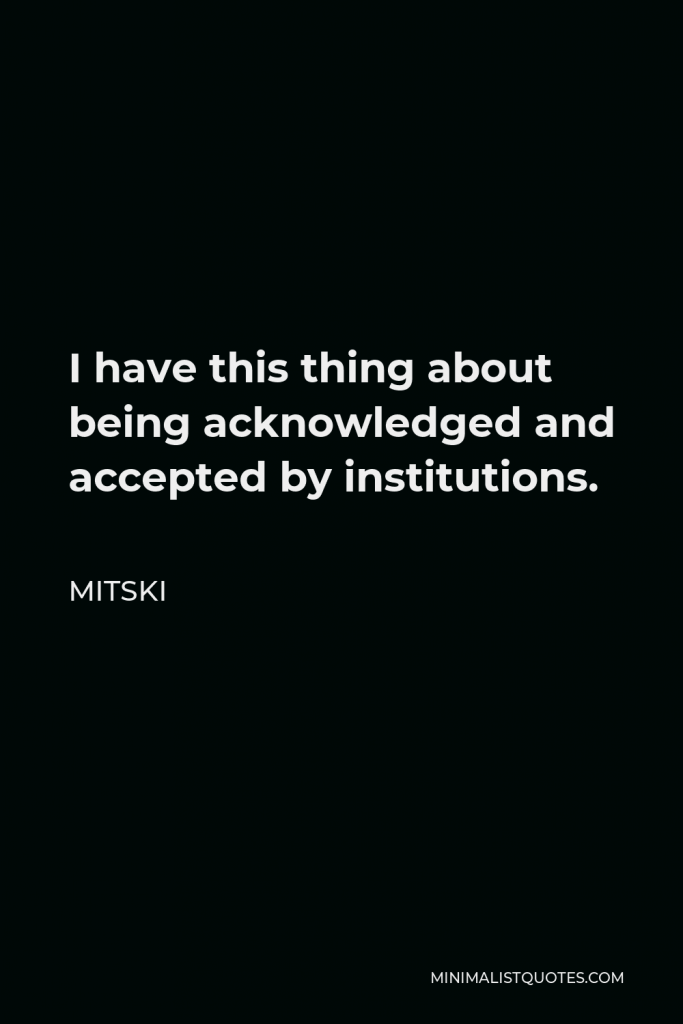

I have this thing about being acknowledged and accepted by institutions.
MITSKI -





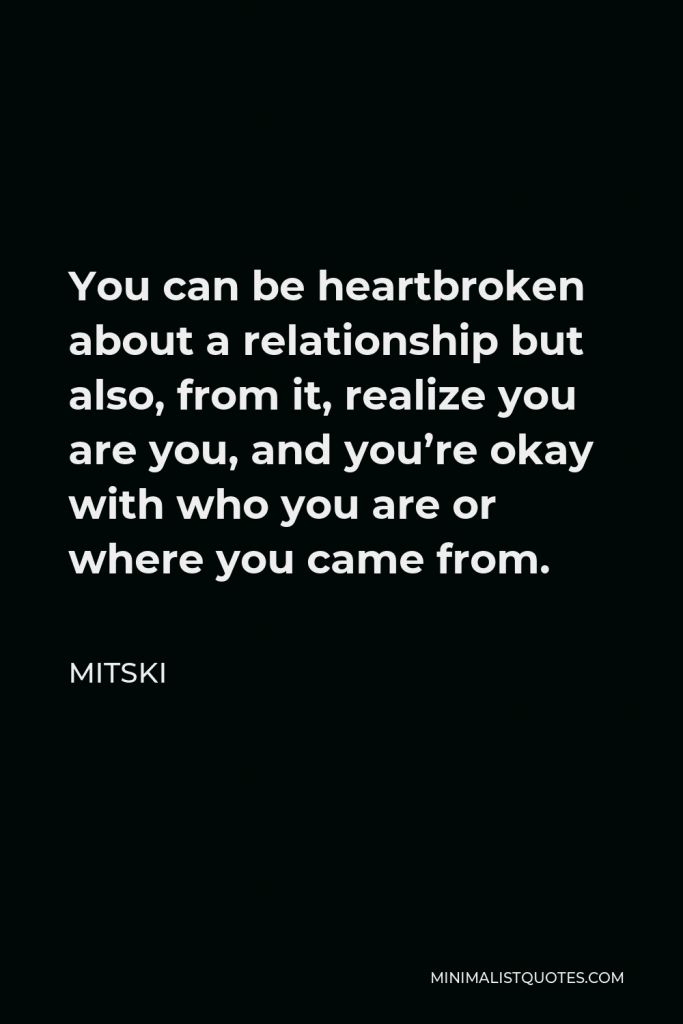

You can be heartbroken about a relationship but also, from it, realize you are you, and you’re okay with who you are or where you came from.
MITSKI -





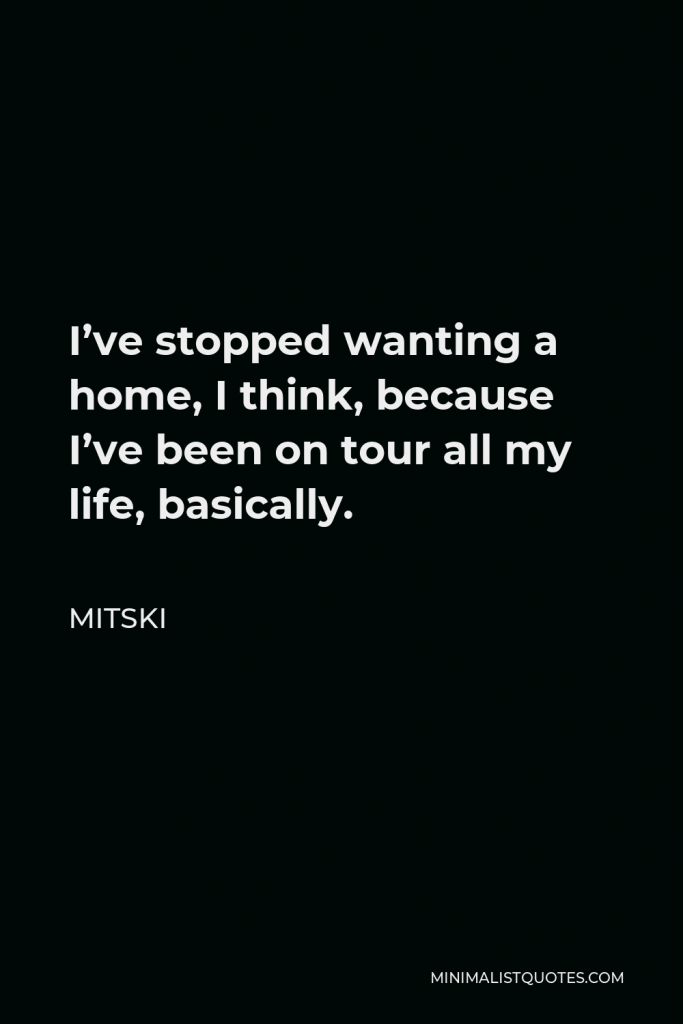

I’ve stopped wanting a home, I think, because I’ve been on tour all my life, basically.
MITSKI -





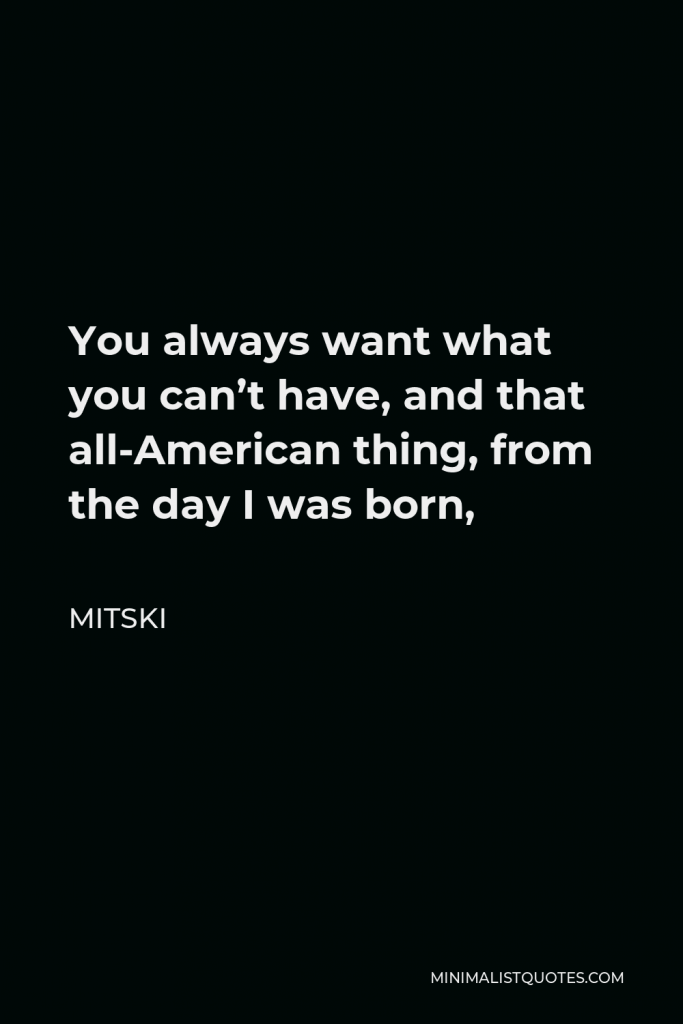

You always want what you can’t have, and that all-American thing, from the day I was born,
MITSKI -





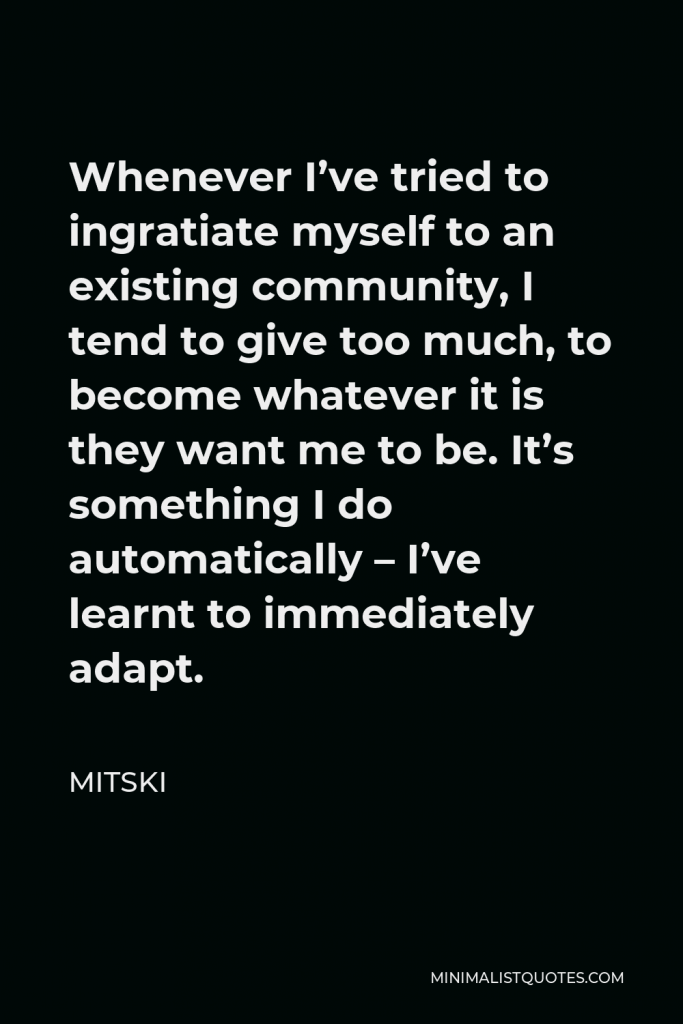

Whenever I’ve tried to ingratiate myself to an existing community, I tend to give too much, to become whatever it is they want me to be. It’s something I do automatically – I’ve learnt to immediately adapt.
MITSKI
